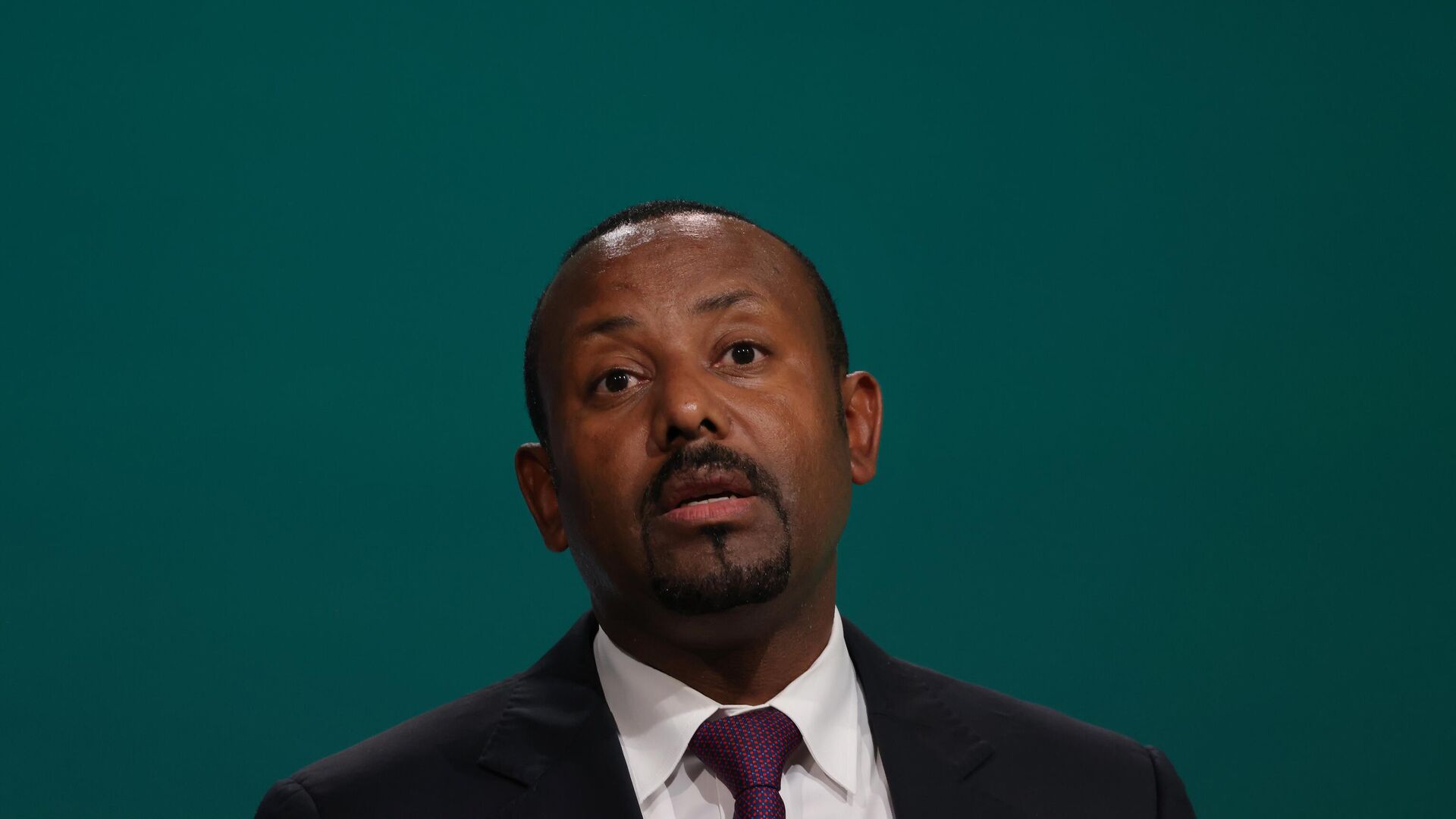https://en.sputniknews.africa/20241103/ethiopian-prime-minister-accuses-foreign-embassies-of-black-market-activities-threatens-action-1069016182.html
Ethiopian Prime Minister Accuses Foreign Embassies of Black Market Activities, Threatens Action
Ethiopian Prime Minister Accuses Foreign Embassies of Black Market Activities, Threatens Action
Sputnik Africa
In late July, Prime Minister Abiy Ahmed announced the launch of a macroeconomic reform policy, the Homegrown Economic Reform Program (HGER 2.0), which aims to... 03.11.2024, Sputnik Africa
2024-11-03T17:23+0100
2024-11-03T17:23+0100
2024-11-03T17:23+0100
sub-saharan africa
abiy ahmed
ethiopia
reforms
economy
east africa
economic growth
embassy
diplomats
exchange
https://cdn1.img.sputniknews.africa/img/07e8/0b/03/1069016293_0:164:3059:1885_1920x0_80_0_0_c2ac9d608ae3a4d6b59d34fd3f817f47.jpg
Ethiopian Prime Minister Abiy Ahmed has accused foreign embassies of engaging in black market currency operations, claiming they are “robbing” Ethiopia's resources.The prime minister expressed concern over the black market's impact on foreign currency availability, highlighting the significant role illegal currency exchanges play in destabilizing the Ethiopian economy.These accusations come amidst Ethiopia's recent implementation of a macroeconomic reform policy aimed at addressing the country's long-standing economic challenges. The reform includes transitioning to a competitive, market-based exchange rate system.While banks and licensed forex bureaus are now offering official rates, the black market remains a significant threat, posing a challenge to the government's efforts to stabilize its foreign exchange market.
https://en.sputniknews.africa/20240804/ethiopia-amasses-over-27-billion-following-macroeconomic-reform-implementation-1067730660.html
ethiopia
east africa
Sputnik Africa
feedback@sputniknews.com
+74956456601
MIA „Rossiya Segodnya“
2024
Muhammad Nooh Osman
https://cdn1.img.sputniknews.africa/img/07e7/04/0a/1058467512_0:0:1280:1280_100x100_80_0_0_ec723833bcbfcaed2e21952965ad99e4.jpg
Muhammad Nooh Osman
https://cdn1.img.sputniknews.africa/img/07e7/04/0a/1058467512_0:0:1280:1280_100x100_80_0_0_ec723833bcbfcaed2e21952965ad99e4.jpg
News
en_EN
Sputnik Africa
feedback@sputniknews.com
+74956456601
MIA „Rossiya Segodnya“
Sputnik Africa
feedback@sputniknews.com
+74956456601
MIA „Rossiya Segodnya“
Muhammad Nooh Osman
https://cdn1.img.sputniknews.africa/img/07e7/04/0a/1058467512_0:0:1280:1280_100x100_80_0_0_ec723833bcbfcaed2e21952965ad99e4.jpg
abiy ahmed, ethiopia, reforms, economy, east africa, economic growth, embassy, diplomats, exchange
abiy ahmed, ethiopia, reforms, economy, east africa, economic growth, embassy, diplomats, exchange
Ethiopian Prime Minister Accuses Foreign Embassies of Black Market Activities, Threatens Action
Muhammad Nooh Osman
Writer/Editor
In late July, Prime Minister Abiy Ahmed announced the launch of a macroeconomic reform policy, the Homegrown Economic Reform Program (HGER 2.0), which aims to address the structural problems of the economy, including debt burden, inflation, unemployment, slow structural change, and stabilize the foreign exchange market.
Ethiopian Prime Minister Abiy Ahmed has accused foreign embassies of engaging in black market
currency operations, claiming they are “robbing” Ethiopia's resources.
"There are some embassies that are robbing Ethiopia's resources and doing black market foreign currency business," Abiy Ahmed said during a speech to the House of People's Representatives, according to local media.
The prime minister expressed concern over the black market's impact on foreign currency availability, highlighting the significant role illegal currency exchanges play in destabilizing the
Ethiopian economy.
"So far, we have been patient. We don’t want to damage our healthy relationships with countries. However, we want relationships that respect the law of the land," Ahmed stated, vowing to take action if foreign embassies continue to engage in black market operations.
These accusations come amidst Ethiopia's recent implementation of a
macroeconomic reform policy aimed at addressing the country's long-standing economic challenges. The reform includes transitioning to a competitive, market-based exchange rate system.
While banks and licensed forex bureaus are now offering official rates, the black market remains a significant threat, posing a challenge to the government's efforts to stabilize its foreign exchange market.



